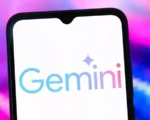The New York Times has officially issued a “cease and desist” notice to the AI startup Perplexity, demanding that the company halt its use of the newspaper’s content for generative AI applications. This development, reported by Perplexity on Tuesday, highlights the ongoing tensions between traditional news publishers and emerging AI technologies. The situation exemplifies the broader conflicts arising as media companies seek to protect their intellectual property in an increasingly digital landscape.
In the letter shared with Reuters, the New York Times outlined its concerns regarding Perplexity’s practices, particularly the way the startup was leveraging the newspaper’s content to generate summaries and other outputs. The publisher argued that such usage constitutes a violation of copyright law, emphasizing the need to safeguard the integrity of its published materials. While the New York Times has not elaborated further on the matter, the implications of this dispute resonate throughout the media and tech industries.
This clash comes amidst a growing wave of apprehension among publishers about the capabilities of generative AI tools. Since the rise of platforms like ChatGPT, there has been a notable increase in concerns over chatbots that can access and synthesize information from various online sources. Media companies are grappling with the challenges posed by these technologies, which have the potential to disrupt traditional news consumption and revenue models.
As AI continues to evolve, the relationship between news publishers and tech firms will likely remain contentious. The New York Times’ proactive stance in addressing perceived infringements serves as a reminder of the need for clear guidelines surrounding the use of copyrighted material in AI development. This situation could set a precedent for how content creators and AI companies navigate the complexities of copyright in the digital age.
















